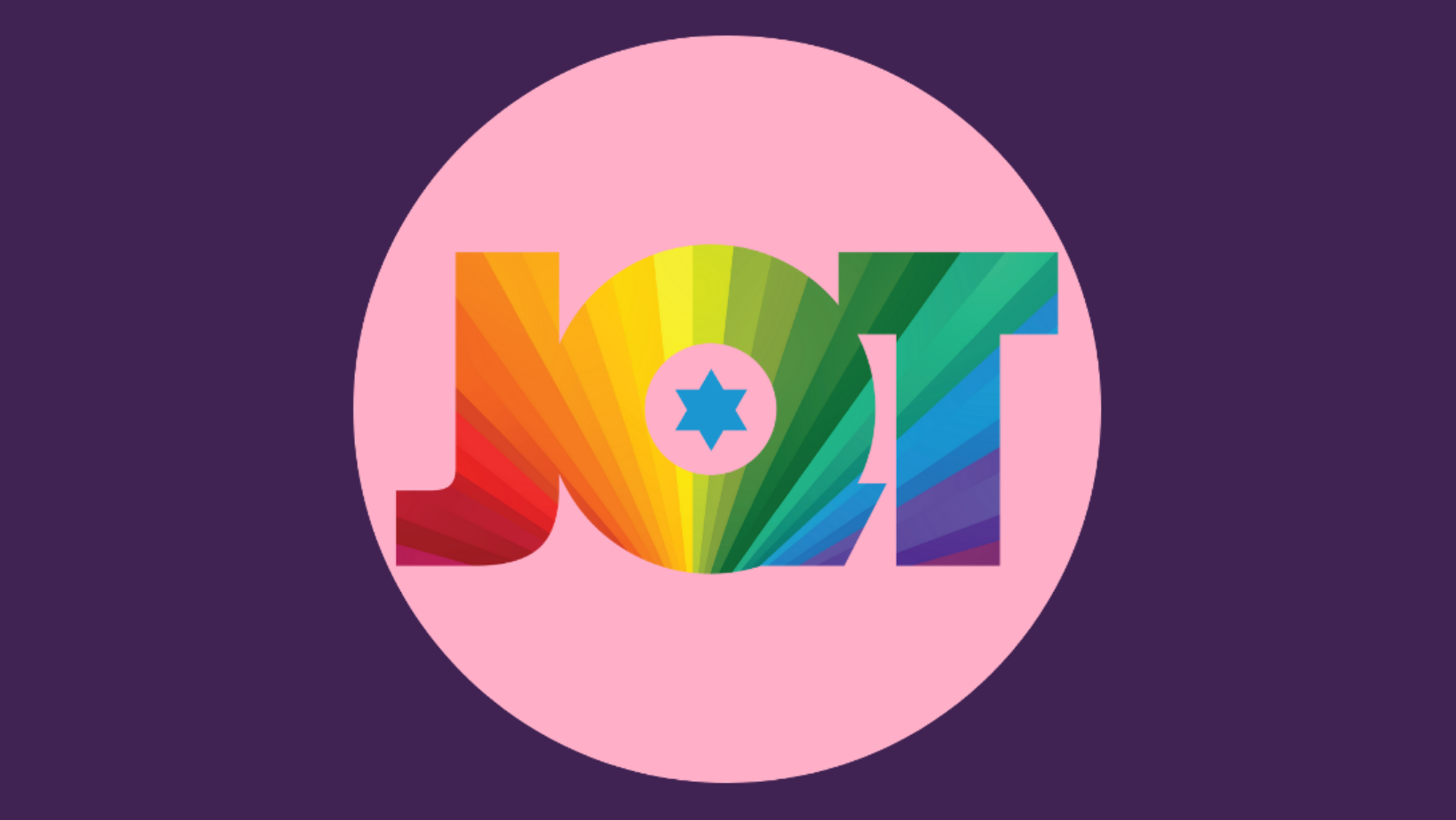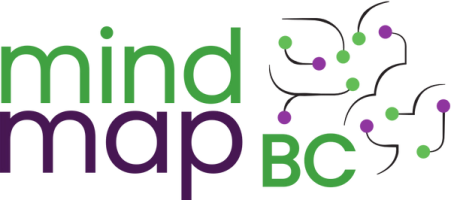
Creating connection in BC’s LGBTQ2SIA+ Jewish seniors community
Martha Gumprich and Carmel Tanaka
February 7, 2022 • 7 Min Read
Introduction
JQT Vancouver (JQT) is a Jewish Queer Trans non-profit with the goal of creating a growing and thriving community for all LGBTQ2SIA+ Jews, where various identities are celebrated where they intersect. Through education, dialogue, art, cultural celebration, and partnerships, they are ‘queering’ Jewish spaces and ‘Jew-ifying’ queer spaces to make them more inclusive. JQT offers programming all year round, both in-person and online, for queer and trans Jews to celebrate this intersection along with those they love, which includes two annual flagship events: 1) Hanukkah Hotties; and 2) JQT Heritage Month. JQT is also involved in a number of projects and initiatives, including The BC Jewish Queer & Trans Oral History Project, the JQT Seniors Initiative; and the Jewish& Initiative for youth and families. Get involved with the JQT Board and/or the JQT Dream Team here!
In May 2020, Carmel Tanaka, JQT’s Founder & Executive Director, embarked on The BC Jewish Queer & Trans Oral History Project to learn the stories of Jewish queer and trans elders and their lived experiences in Jewish and LGBTQ+ communities across BC over the decades in an effort to make the community archives more complete. This project is the first of its kind in the province and celebrates a doubly marginalized demographic in the Jewish community, a people who have paved the path for those who identify as queer and trans today.
Many Jewish stories that receive public attention are those of cisgender, heterosexual, Ashkenazi Jews. While these stories are always important, so is diversity within the Jewish community. Stories from those who are marginalized, within an already marginalized community, are an act of bravery and courage, from a community that faces violence and threats to safety constantly. These stories are held with those who will not be here forever and in order to pass on our history and help create stronger connections within the Jewish community, these stories must be shared. Many young Jews have never met a queer, Jewish elder. This exposure shows them that queer Jewish life is possible and that we're not alone.
After each of the 38 interviews, Carmel asked the participant if there was anything she had missed or they wanted to add. A common theme emerged - these elders want safe queer and cultural spaces in long-term care.
The natural next step was for Carmel to approach Louis Brier Home and Hospital, a Jewish seniors home in Vancouver, to speak to the LGBTQ+ residents. The home did not know of any such residents, as there is no inquiry as to whether or not someone is LGBTQ+ and interested in receiving any queer support. Further, the intake process is handled by Vancouver Coastal Health (VCH), so Carmel’s journey continued. Turns out, VCH does not collect this info either.

JQT Seniors Initiative
These community interactions gave rise to the JQT Seniors Initiative. This initiative is a working group of Jewish, LGBTQ+ and senior healthcare organizations, as well as JQT seniors, whose mission is to lead an awareness campaign addressing senior social isolation and loneliness in the Jewish community, as well as the fear of going back into the closet and/or hiding one’s religious and cultural identities upon entering long-term care.
This initiative organizes regular meetings with partner organizations and educational events to identify a number of areas that require improvement including:
- Increased inter-collaboration among Jewish, LGBTQ+ and senior healthcare organizations;
- Integrated outreach to seniors, who are affiliated/unaffiliated to the Jewish community living independently or in long-term care; and
- Commitment to organizational learning through mandatory and continual staff training, and the adoption of inclusive, diverse and accessible Board Bylaws and internal policies.
To join the JQT Seniors Initiative, email carmel@jqtvancouver.ca
Pilot Project and Next Steps
The JQT Seniors Initiative is now working with VCH and health authorities across BC to develop a pilot project to make the intake process for long-term care more inclusive of LGBTQ+ seniors. The question now is: What is the best approach?
The project proposes to work with one of the homes run by VCH to work on best practices for this initiative. Some of their questions include:
- Does the home begin by asking new residents if they identify as LGBTQ+ by including such a question on the intake form?
- Should the form, instead, offer a checkbox to opt-in if someone is interested in LGBTQ+ support or programming?
- How does the home ask current residents these questions who have already gone through an intake conducted by VCH prior to this addition?
- How is it ensured that these resources are easily updatable as times and needs change?
- Once these LGBTQ+ seniors have been identified, what next? Who creates the programming and provides resources and support for these individuals? How is it ensured that these resources are accessible for all (eg. not all seniors can use a computer or have access to the internet)?
While implementing a new question on an intake form seems like an easy fix, there is a lot of thought, planning and infrastructure that needs to occur before such an initiative can be rolled out and implemented across BC homes. Why is this important?
Time and time again, when the LGBTQ+ community calls out for change or voices their concerns, no action is taken. JQT is trying to ensure this does not happen to these seniors who first voiced this issue. As Carmel stated during our interview:
“Being told something’s important but not a priority is a form of silencing. You want to talk about trust, but this is not a good model. It creates anger and resentment about one's identity. When there is a lack of understanding of one’s community and culture, you feel alone, othered, and that you don’t belong.”
No matter your age, we all desire a sense of connection and community. There are decades of transition between now and when LGBTQ+ inclusion will hopefully no longer be such a great obstacle, as LGBTQ+ acceptance in younger generations is normalized. So, it really is a matter of what to do in the interim for the seniors now and those about to enter care.
This project is not important for the Jewish community alone as this model can be applied to all seniors homes across Canada. Community has no borders. Community and connection are for all and that is exactly what the JQT Seniors Initiative is about.
Action Items:
While this work is slow at times, it is incredibly important. Partner organizations are working on difficult, organizational, cultural changes. Changes that are not going unnoticed or unappreciated. For those of us who are not involved in this initiative, Carmel encourages us to:
- Listen to others and value people’s lived experiences and witness accounts
- Share the BC Queer and Trans Oral History Project with your community and encourage them to do the same
- Recognize that organizations do not have to be health-oriented in order to be doing life-saving, affirming care and programming
- If possible, donate to organizations like JQT that are doing such great work for community building
- Share your experiences and have your voice heard, by completing JQT's survey.
For more support, visit JQT’s listing on Mind Map, Qmunity, or explore other affirming mental health services on MindMap:
- Lily Shalev, at The Grounding Stone
- Alex Leslie, at Understory Counselling
- Zoey Green, at Evergreen Counselling
← Previous Article
Know Your RightsNext Article →
Supporting Survivors of Conversion Therapy